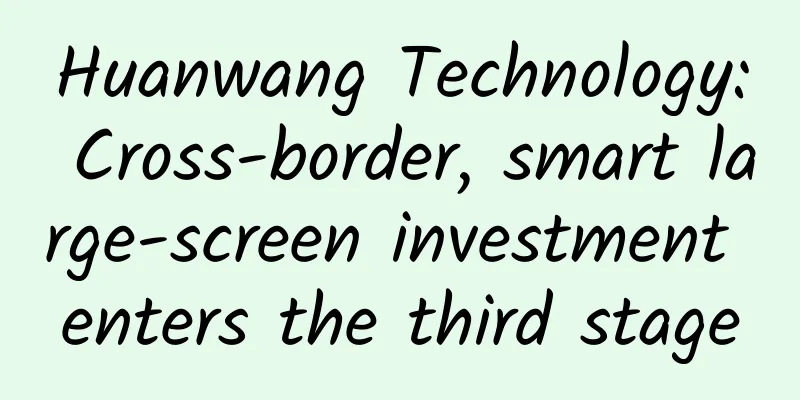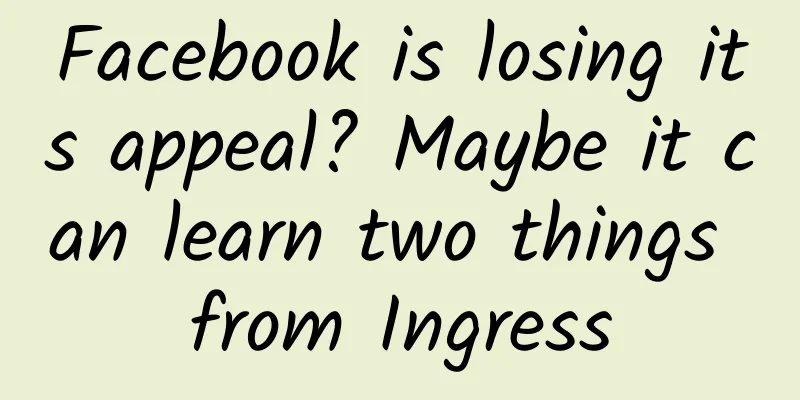Reflection on the Double Eleven Carnival: Ecological Concepts Still Need to Be Consolidated

|
The effect of the Double Eleven Carnival, an e-commerce event led by Alibaba, is really not exaggerated. My wife came back from a business trip last night. As soon as she got home, she fell into a deep sleep. Then, in the middle of the night, she suddenly woke up and picked up her phone to check Tmall and Taobao: Well, not bad, not bad, I bought everything I wanted. A nephew who lives in Heihe, Northeast China, said on QQ that he had a new mobile phone. I asked him if he had just bought one in September. He said “hmm” and then said that it was not easy to use and he used it as a game console. Then, his QQ status was listening to music. Then, on social platforms, a large wave of data came rushing in, accompanied by a passion like chicken blood. The army of picture-brushing was mainly concentrated in a few companies. A night of consumerism passed by. The rest of the day was spent waiting for the final overall data. Of course, some people were busy sleeping. I’m ashamed to say that I’ve never bought anything worth a dime on Singles’ Day or 618. It’s not that I don’t have feelings for it, I just don’t like going to big markets. When I was a kid, my parents, brothers and sisters would go there, and every time I saw a large group of people gathering together, I felt that something was wrong. I feel uncomfortable because these come from a kind of manufactured consumption power. Although the public's cognition has been deeply rooted in the hearts of the people, I have seen from the products purchased by my wife and nephew that some of the goods are not so urgent or dispensable. I'm not being pretentious, I'm a person who advocates a simple life. Although I can't live by the lake like Thoreau, I spend most of my personal time in places with few people, or reading. In this atmosphere, sometimes I feel that I am slowly falling behind, and sometimes I feel that I am so insensitive that I am always ahead of the times. Yes, although I consider myself to be at the forefront of the industry, it is still difficult for e-commerce to change my stubbornness. Although Double Eleven and 618 are fun, in my mind, their effects should be diluted in the future, so that business can be done without disturbing the public. When the overwhelming slogans of Double 11 crowded the online platforms, I felt a sense of commercial violence and a sense of environmental pressure in the virtual society. This is my first intuitive feeling about Double 11 and 618. Alibaba has done well enough. This Double Eleven, its concept is more ecological, international and consumer-friendly than the past five sessions, and of course it also conforms to the trend of mobile Internet. However, Alibaba also cannot make the online consumption of the vast majority of people smooth and silent. Alibaba's huge platform is still a long way from the grassroots people, especially in rural areas. You can feel it from its rural wall painting and county economic conference. This is certainly not Alibaba's responsibility. At least it has realized it and has made many inclusive decisions. But in terms of the environment of online consumption, it has also created a lot of bubbles. The carnival of e-commerce, no matter how it is packaged, can hardly dilute the utilitarian commercial appeal. This is understandable. The second feeling comes from the imbalance of the industrial chain. The carnival of Double Eleven highlights the passivity of upstream Chinese manufacturing and brand companies. Zhang Jindong once said something that made him very proud: "Channels are the throat of industry." What he said is true, but it always gives people a feeling of being a mountain king, as if the manufacturing industry is all working for the channels. The carnival of consumerism cannot cover up the sense of crisis in the upstream manufacturing industry. As a manufacturing powerhouse, China has the largest global production capacity in at least 10 areas involving consumption and infrastructure. Their markets are subject to fluctuations caused by changes in the external environment, and the topics of capacity waste, inventory, and dumping have never stopped. There is an information gap between them and consumption. They simply cannot really make accurate responses based on downstream consumption trends, thereby avoiding many business risks caused by information opacity. This is also my judgment on the future trend of the Internet: after a wave of mobile Internet boom centered on entertainment and consumption, the next step of China's Internet industry is expected to start a new round of industry or industrial Internet boom and reactivate the manufacturing, design, materials and equipment industries. China is a manufacturing powerhouse. With a large population and vast territory, the logic of "de-manufacturing" does not work. I remember when I just graduated, it was the first wave of industrial informatization, and financial software and management software were very popular. The saying "not using ERP is waiting for death, and using ERP is seeking death" has been said almost too much. That was also the impetus for China's major departmental reforms, namely the establishment of the Ministry of Industry and Information Technology, and the so-called "industrialization and informationization" integration. However, a SARS outbreak brought a turning point to the online world; then, in 2004, with the rise of the telecommunications industry and its integration with the Internet, the direction and focus of the entire industry suddenly shifted to the mobile Internet, thus leading to today's situation. During this process, although the informatization of manufacturing and enterprises has been deepening, the scale, influence, penetration into the lives of the general public, and of course the driving force of global capital, have been almost drowned by the flood of mobile Internet, and the sense of crisis in the manufacturing and traditional circulation industries has deepened. When the 2008 financial crisis came, there was even a voice of "de-manufacturing" in China. I remember that until 2009, many coastal manufacturing industries were closed and relocated on a large scale, and some projects were relocated to Southeast Asia, which also triggered a crisis discussion. To be honest, I respect the manufacturing industry as much as many emerging fields. Because it is the foundation of a country. In the words of an economist, it flows with moral blood. I have always been cautious about the subversion and revolution of the Internet world. When the trend of mobile Internet is unstoppable, and the manufacturing industry and the real economy are constantly depreciated, I feel that its bubble is coming soon, and the world will definitely recycle. Without the revival of the manufacturing industry and the real economy, the Internet will also lose its soil. The most reasonable model, of course, is to embed the Internet as a tool and information platform into traditional industries, transforming them into a new integrated economic model. The same is true for the manufacturing industry. So, when I recall Zhang Jindong's words, I feel that they are a bit like those of a mountain king, because that is not an integrated model. The 3C chain channel only benefits from the export effect of the manufacturing industry, and of course, the real estate industry has more value. China's traditional retail industry is the twin brother of the real estate industry. I admit that China's e-commerce has indeed brought about huge changes in real life. This year's Double 11, we also saw the improvement of Alibaba's business philosophy, which infused Double 11 with an ecosystem, internationalization, and brand concepts. Moreover, its platform effect has penetrated into upstream manufacturing, and can provide many customized services based on consumer needs. But I think it is far from enough. Alibaba still needs to downplay utilitarian data and the pervasive Double Eleven language. It should purify the market, curb the destruction of the network environment, and accelerate the export of its basic service capabilities to pave the way for the upgrading of upstream manufacturing. In fact, Alibaba has realized this and has already done so. Before Double Eleven, Alibaba Cloud and Alibaba Baichuan Project had already been put into service. In the "cloud" strategy emphasized by Jack Ma, they are both basic parts, but also the core of the transition from IT to DT. Without the ability to serve countless B-side enterprises and industries, Alibaba will never be able to achieve its strategic goals in the next 5 to 10 years. Double Eleven, 618, and other e-commerce carnivals can indeed sell a lot of things, create a lot of effects, and accumulate a lot of experience. But after the carnival, we still have to operate day after day. After each festival, there will be deep fatigue, fatigue of people and fatigue of the industry. It leaves more of a short-lived pleasure in people's minds. As a winner of Toutiao's Qingyun Plan and Baijiahao's Bai+ Plan, the 2019 Baidu Digital Author of the Year, the Baijiahao's Most Popular Author in the Technology Field, the 2019 Sogou Technology and Culture Author, and the 2021 Baijiahao Quarterly Influential Creator, he has won many awards, including the 2013 Sohu Best Industry Media Person, the 2015 China New Media Entrepreneurship Competition Beijing Third Place, the 2015 Guangmang Experience Award, the 2015 China New Media Entrepreneurship Competition Finals Third Place, and the 2018 Baidu Dynamic Annual Powerful Celebrity. |
<<: Is WeChat Phonebook really causing operators to lose sleep?
>>: Double 11 ends: Alibaba reveals the numbers behind it
Recommend
Summary of information flow advertising optimization techniques!
1: Bid If the account is old and new products are...
Interpreting ASP.NET 5 & MVC6 Series (8): Session and Caching
In previous versions, Session existed in System.W...
A magical journey: Oil's autobiography, My legend part 2
Ancient life came from the vast ocean and returne...
Will the epidemic affect everyone’s wages? How to calculate salary for working from home? Attached is the response from the Ministry of Human Resources and Social Security
Although the epidemic situation is developing in ...
A Brief History of Global Festivals丨How much do you know about the world's largest international organization?
In this issue of A Brief History of Global Festiv...
Ajie·How to break the black label of Pinduoduo traffic, the idea of hot selling, Pinduoduo traffic framework, and quickly seize tens of billions of traffic
Ajie·How to break the black label of Pinduoduo tr...
Electric Technology Car News: Can the updated Honda CR-V regain the top spot in SUV market with its T-powered and hybrid models?
A few years ago, there was only one model in the ...
Urgent! What should I do if I have a lot of dandruff? Dermatologists tell you these tips
Expert of this article: Wang Ruiyan, MD, associat...
Some organisms have not changed in hundreds of millions of years. Has evolution really stagnated?
Some organisms seem to have remained unchanged in...
The only cancer in the world that can be prevented by a vaccine! Should men get vaccinated?
Expert of this article: Hu Zhongdong, Chief Physi...
The green fried toothpicks are "fragrant", and the Food Safety Bureau issued a reminder: Please don't eat the toothpicks!
Image source: Internet About a month ago, someone...
Health protection tips during sandstorms
Health protection tips during sandstorms In dusty...
After losing 500,000 yuan in an event, I learned 4 "bloody" lessons
In recent days, a marketing director left a messa...
Cross-border e-commerce: Amazon newbies can open stores around the world with zero basic knowledge
Course Catalog: ├──01. Lesson 1: Understanding Am...
Teach you to write a super simple swoole chat room in five minutes
I was originally planning to continue writing my ...









